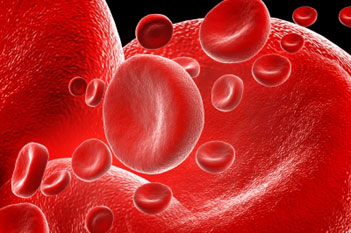Current testing for Lyme disease, unfortunately, is unreliable at best. Due to the nature of the Lyme Spirochete and its many mechanisms for evasion of immune defenses and antibiotics, it makes it difficult to get a reliable test result. It is possible to have Lyme spirochetes colonizing in tissues such as the brain, heart, and joints and go undetected by the immune system. This would result in a negative blood result. For testing labs, see the links on this page.
There are numerous Lyme patients whose tests came back negative, yet are able to confirm with treatment and sometimes later testing that they are infected with Lyme disease and they do respond well to treatment. Personally, I don’t believe in false positives (as they are extremely rare), only false negatives due to this. If your body has antibodies to the Lyme spirochete or you have a positive direct test, chances are you have Lyme disease. How severe and the duration of infection is a clinical diagnosis.
It is crucial to be tested for other Co-infections, secondary infections, and other underlying conditions along with Lyme disease. Symptoms are so varied, it is important to rule out all possible causes prior to beginning Lyme treatment. This includes other tick-borne illnesses, auto-immune disorders, Candida, and genetic mutations. Knowing what you are working with determines the path to take for treatment.
Current Tests Available
Indirect Tests
ELISA (Enzyme Linked Immune Sera Assay) test
Type: Serology Antibody Test
Reliability: 45% or less
Use: Usually the first test done when Lyme disease is suspected.
Western Blot
Type: Serology Antibody Test
Reliability: 31% due to current reporting guidelines set by the Association of State and Territorial Public Health Laboratory Directors.
Use: Usually the second test done if a positive result is found with the ELISA test. Some doctors will request both tests.
CD-57 Test
Type: Serology CD-57 marker (killer cells) count
Reliability: unknown
Use: Can be used to measure CD-57 markers. It is thought that a very low (below 60) CD-57 count is a good indication of active Lyme disease infection. Normal CD-57 range is 60-360.
Other Antibody Tests (EIFA; Borreliacidal Antibody Assay (Gunderson test))
Type: Serology Antibody Test
Reliability: unknown
Use: Not typically used..
Direct Detection Tests
Live Culture (Borrelia Culture)
Type: Live Culture
Reliability: High if infection is present and Lyme Borrelia are captured and successfully cultured in sample. Until recently, it has been difficult to culture Lyme Borrelia due to its parasitic nature and this type of test has not been available.
Use: The Gold standard in testing.
Although still in the investigative stage, this testing shows promise. It is a Borrelia Culture test available through Advanced Laboratory Services. The press release gives more information.
PCR (Polymerase-chain-reaction) test
Type: Bacterial DNA detection
Reliability: Good if Lyme bacteria are in sample. Unfortunately, they tend to be sparse, so false negatives are probable.
Use: Usually done as an additional test. Sometimes used to monitor treatment progress.
Antigen Detection Tests (Lyme Urine Antigen Test (LUAT); Antigen Capture Test; Culture of fluid or tissue; immune complex/antigen-antibody test)
Type: Lyme proteins found in fluid or tissue samples (blood, urine, joint fluid, Cerebral Spinal Fluid (CSF), skin, tissue, etc…)
Reliability: Good if Lyme bacteria are in sample. Unfortunately, they tend to be sparse, so false negatives are probable.
Use: Usually done as an additional test. Sometimes used to monitor treatment progress.
Tissue Biopsy Staining
Tissue Biopsy, Centrifuged blood, Spinal fluid, or Urine (Silver Stain; Gold Stain; Fluorescent Tagged Monoclonal Antibody Stains; Acrodine Orange; Gram Stain; Muramidase; etc…)
Type: Direct observation under a microscope.
Reliability: Good if Lyme bacteria are in sample. Unfortunately, they tend to be sparse, so false negatives are probable.
Use: Usually done as an additional test. Sometimes used to monitor treatment progress.
Co-Infections Testing
Candida Testing
Candida should be tested along with Lyme and its Co-infections. Because symptoms are so similar and antibiotics can make Candida much worse, it is important to rule this out. It also should be monitored and treated throughout Lyme treatment. Here are the most common Candida Tests.
At home Spit Test and Questionnaire
Candida Panel
Type: Serology antibody/antigen test
Reliability: Accurate in detecting current infections and severity.
Use: Usually done as an initial test following clinical analysis. Sometimes used to monitor treatment progress.
Natural Candida Cleansing-Candida Test
Complete Profile Stool Analysis
Type: Stool Sample Analysis
Reliability: Comprehensive in determining good and bad microbes, parasites, immune function, sensitivities, inflammation, etc.
Use: Usually done as an additional test. Sometimes used to monitor treatment progress.
Genetic Mutations & Testing
It is becoming more and more common that Lyme patients also have certain genetic mutations that effect their ability to heal completely from Lyme disease. Pathways that allow normal (and crucial) detoxification are often blocked, adding more complexity to treatment for these patients. It is important to have genetic testing done as well. Treatment may need to be altered for some of these. For more information, see the Integrative Treatments page.
Financial Assistance
If you are in need of help, please go to the Financial Assistance page or visit these sites:

All testing for Lyme disease is Unreliable!